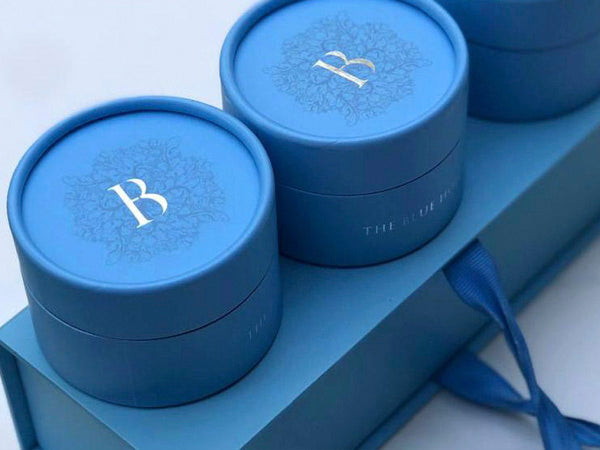Blue Lotus Tea
Origin of Blue Lotus Tea
The Blue Lotus (Nymphaea caerulea), also known as the Blue Water Lily, has been revered for thousands of years, particularly in ancient Egyptian culture. It holds significant symbolic meaning, representing rebirth, enlightenment, and purity. The flower was frequently depicted in Egyptian art and mythology, often associated with the gods. It was used ceremonially in rituals, as it was believed to have psychoactive properties that could connect people to the divine.
Native to the Nile River and other parts of East Africa and Southeast Asia, the blue lotus grows in still or slow-moving waters. Over time, its use spread to other regions, where it has been incorporated into traditional medicine for its calming and euphoric effects.
Benefits of Blue Lotus Tea
-
Promotes Relaxation and Stress Relief
Blue lotus tea is known for its calming and mildly sedative properties. Its natural alkaloids, including nuciferine and aporphine, promote a sense of tranquility, reducing stress and anxiety. This makes it an excellent choice for relaxation or unwinding after a long day. -
Enhances Sleep Quality
Due to its sedative qualities, drinking blue lotus tea before bed can help improve sleep quality. It aids in relaxation, making it easier to fall asleep and promoting deeper rest. -
Mild Euphoria and Mood Enhancement
One of the key reasons blue lotus was revered in ancient times is its ability to produce a mild euphoric effect. It helps lift the mood and creates a sense of happiness, making it useful for those dealing with mild depression or simply wanting a gentle mood boost. -
Supports Mental Clarity and Focus
Although relaxing, blue lotus tea does not impair mental function. In fact, many users report feeling more focused and mentally clear after drinking it, making it useful for creative work or meditation. -
Natural Aphrodisiac
Blue lotus has historically been used as a natural aphrodisiac, believed to enhance sensuality and intimacy. Its relaxing properties combined with mild euphoria can help set a romantic mood and enhance sexual pleasure. -
Supports Circulatory Health
The alkaloids present in blue lotus, particularly nuciferine, can promote healthy blood flow and circulation. This may have benefits for cardiovascular health, helping to support overall heart function. -
Rich in Antioxidants
Blue lotus tea contains antioxidants such as flavonoids and phenolic acids, which help protect the body from oxidative stress. This can promote overall health and reduce the risk of chronic conditions like heart disease and aging-related issues. -
Anti-inflammatory Properties
The compounds in blue lotus have anti-inflammatory properties, which may help soothe mild aches and pains, as well as promote overall joint and muscle health.
How to Use Blue Lotus Tea
Blue lotus tea can be made by steeping dried blue lotus flowers in hot water for about 5-10 minutes. The tea has a light, floral, and slightly sweet taste. It can be enjoyed on its own or with natural sweeteners like honey or lemon.
Some prefer to steep it with other herbal blends for enhanced flavor or added benefits. It is also used in essential oil form or combined with wine, a traditional method for ceremonial use in ancient cultures.
Considerations
Blue lotus tea is generally considered safe, but some people may experience drowsiness or mild dizziness due to its relaxing properties. It's best to start with a small amount if you're new to it, and it may not be suitable for pregnant or breastfeeding women, or those on certain medications without consulting a healthcare provider.
Cultural and Modern Use
In addition to its medicinal uses, blue lotus continues to hold spiritual significance in many cultures. Today, it is used in teas, aromatherapy, and even skincare for its soothing and healing properties.





 Our Story
Our Story
 Brand Collaborations
Brand Collaborations
 Souvenirs
Souvenirs
 Franchise
Franchise


